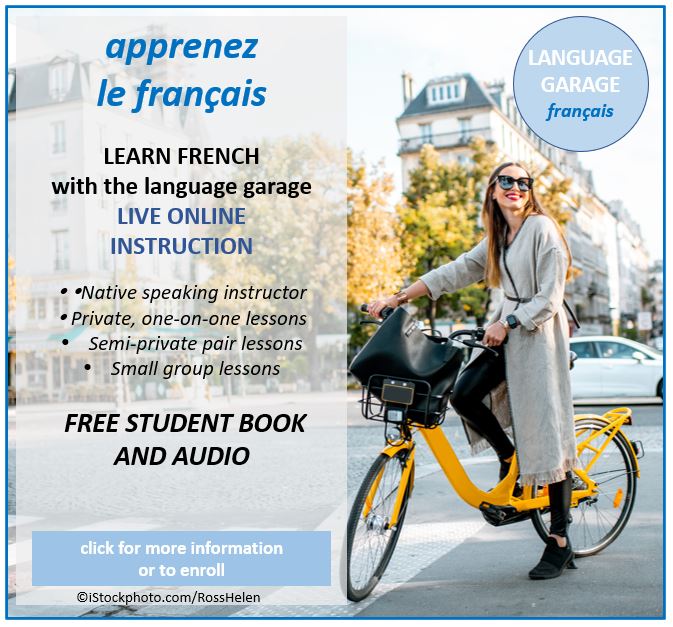Image by StockSnap from Pixabay
In this post we’ll cover lots of French vocabulary and structures that will help you talk about your moods, emotions, and feelings.
Comment tu te sens/vous vous sentez ? How do you feel?
Let’s start with some questions you can ask to find out how people feel.
- Comment tu te sens/vous vous sentez maintenant/là ?
How are you feeling right now? - Ça va ? Tu vas/Vous allez bien ?
Are you okay? - (Est-ce que) Tout va bien ?
Is everything okay?
- Tu es/Vous êtes de bonne humeur ou de mauvaise humeur ?
Are you in a good mood or a bad mood? - Tu t’amuses/Vous vous amusez bien ?
Are you having a good time? - Qu’est-ce qu’il y a ? / Qu’est-ce qu’il se passe ?
What’s the matter? - Est-ce que la nourriture / le film / la fête te/vous plaît ?
Are you enjoying the food / the film / the party?
Je suis content(e). I’m happy!
Let’s start with some really basic happy stuff.
- Je suis content(e) / heureux / heureuse.
I am happy. - J’aime ce temps.
I like/I am happy about the weather. - Je suis content(e) de ces bonnes nouvelles. /Ces bonnes nouvelles me font vraiment plaisir.
I’m happy about the good news. - Cette chanson me rend heureux/heureuse.
This song makes me happy. - Ces nouvelles me rendent heureux/heureuse.
This good news makes me happy. - Je suis vraiment de bonne humeur aujourd’hui.
I’m in a really good mood today. - Je suis de bonne humeur à cause du soleil/beau temps.
I’m in a good mood because of the sunshine. - Le beau temps me met toujours de bonne humeur.
Nice weather always puts me in a good mood. - Pourquoi tu souris/vous souriez ?
Why are you smiling? - Je souris parce que je suis content(e)/heureux/heureuse.
I’m smiling because I’m happy. - Pourquoi tu ris/vous riez ?
Why are you laughing? - Je ris parce que cette vidéo est drôle.
I’m laughing because this video is funny.
Je suis triste ! I’m sad!
Now let’s cover some basic unhappy things.
- Je suis triste !
I am sad. - Je n’ai pas le moral aujourd’hui.
I’m feeling a bit down today. - Ce temps me rend/Ces nouvelles me rendent triste.
I am sad about the weather/the bad news. - Cette chanson/Cette pluie me rend toujourstriste.
This song/The rain always makes me sad. - Je suis de mauvaise humeur aujourd’hui.
I’m in a bad mood today. - Je suis de mauvaise humeur parce que je suis fatigué(e).
I’m in a bad mood because I’m tired. - La circulation/le trafic me met toujours de mauvaise humeur.
Traffic always puts me in a bad mood. - Pourquoi pleures-tu/pleurez-vous ?
Why are you crying? - Je pleure parce que je suis très triste.
I’m crying because I’m very sad. - Je suis un peu contrarié(e) maintenant.
I’m a little upset now. - Je suis contrarié(e) parce que mon copain/ma copine…
I’m upset because my girlfriend/my boyfriend… - Je suis déçu(e) du restaurant /du film / de mes ami(e)s.
I’m disappointed by the restaurant / the film / my friends. - Je suis jaloux/jalouse de ton nouveau copain/ta nouvelle copine.
I’m jealous of your new boyfriend/girlfriend.
Je m’amuse beaucoup/vraiment ! I’m having a great time!
If you’re doing something that you really enjoy, you could say:
- On s’amuse beaucoup/vraiment ici.
We’re having a great time here. - Je me suis beaucoup/vraiment amusé(e) à la fête/soirée.
I had a great time at the party. - C’était super/génial de te/vous voir !
It was wonderful to see you! - J’ai vraiment du plaisir à passer du temps/ à être avec mes amis.
I really enjoy spending time with my friends. - On s’est beaucoup amusés aujourd’hui.
We enjoyed ourselves very much today. - Je m’amuse beaucoup.
I’m having a lot of fun. - Je m’amuse toujours beaucoup avec mes ami(e)s.
I always have fun with my friends. - On s’est éclaté au match !
We all had a blast at the game! (“We burst at the game.”)
J’ai hâte de faire ce voyage. I’m excited about my trip.
If you’re excited about something, you may want to say:
- Je vraiment hâte de faire ce voyage / de commencer mon nouveau travail.
I’m excited to take my trip / to start my new job. - J’attends ce weekend / ce film avec impatience.
I’m looking forward to the weekend/ this film. - Qu’est-ce qui vous enthousiasme / passionne tant ?
What are you excited about? - Qu’est-ce que tu as/avez envie de faire ?
What do you feel like doing? - J’ai hâte de voir mes ami(e)s.
I can’t wait to see my friends. - Faire du VTT (vélo tout-terrain), c’est génial/super/formidable.
Riding a mountain bike is exciting. - Il y a plein de choses géniales/super/passionnantes/formidables à faire dans les environs/le coin.
There are lots of exciting things to do around here. - J’ai très hâte de lire ce livre.
I’m very eager to read that book. - Mon nouveau travail me passionne vraiment.
I’m very enthusiastic about my new job.
Je m’ennuie. I’m bored.
Of course, life isn’t only fun and excitement. You will probably experience plenty of times when you want to say:
- Je m’ennuie vraiment aujourd’hui.
I’m really bored today. - Ce film est ennuyeux !
This film is boring! - J’ai juste envie de rester (allongé) sur mon canapé et de regarder la télé toute la journée.
I just feel like lying around and watching TV all day. - Je n’ai rien envie de faire.
I don’t feel like doing anything. - J’en ai assez de ce mauvais temps.
I’m tired of the bad weather. - J’en ai marre de mon travail. Il est très ennuyeux.
I’m fed up with my job. It’s very dull. - Cette musique m’énerve/m’agace.
This music annoys me. - Tu m’énerves/Vous m’énervez là/maintenant !
You’re annoying me right now! - Je ne peux pas supporter cette chanson.
I can’t stand this song. - Ce bruit / Cette lumière / Cette odeur m’énerve/me tape sur les nerfs.
The noise/light/smell is getting on my nerves.
Je suis très préoccupé(e)/J’ai beaucoup de soucis. I have a lot on my mind.
Sometimes it’s hard for us to focus because we’re thinking of something else.
- Tu as l’air ailleurs. Vous avez l’air préoccupé(e).
You seem distracted. - Quelque chose te/vous préoccupe ?
Is there something on your mind? - Je suis très occupé(e). Je me sens submergé(e).
I’m very busy. I feel overwhelmed. - Je suis inquiet/inquiète pour mon mari/ma femme/mon ami(e).
Je me fais du souci pour mon mari/ma femme/mon ami(e).
I’m worried about my husband/my wife/my friend. - Je me sens un peu déprimé(e).
I feel a little depressed. - Je m’inquiète/Je me fais du souci pour mon travail.
I’m anxious about my job. - Je suis nerveux/nerveuse parce que je dois aller à l’hôpital.
I’m nervous because I have to go to the hospital. - Je suis inquiet/inquiète pour ma mère/mon père/mon fils/ma fille.
I’m worried about my mother/my father/my son/my daughter. - Je ne peux pas me concentrer/Je n’arrive pas à me concentrer sur mon travail.
I can’t focus on my work. - Je n’y vois pas clair. J’ai besoin de me concentrer.
I’m confused. I need to concentrate. - Je ne me sens pas bien ici.
I’m uncomfortable here. - Cet endroit/Cette conversation me met mal à l’aise.
This place/conversation makes me uncomfortable.
J’ai peur ! I’m afraid!
There are lots of ways to talk about things that you’re frightened of.
- J’ai peur du noir/des araignées.
I’m afraid of the dark / spiders. - Ce film est terrifiant !
This film is terrifying! - Je vais faire/avoir des cauchemars.
I’m going to have nightmares. - De quoi tu as peur ?
What are you afraid of? - J’ai le vertige.
I’m afraid of heights. - J’ai sursauté quand j’ai vu le serpent.
I was startled when I saw the snake. - J’ai crié quand j’ai vu une souris.
I screamed when I saw a mouse. - Je flippe ! Il faut que je me calme.
I’m freaking out! I need to calm down.
Je suis très fâché(e). I’m very angry.
Some emotions are much stronger than other.
- Je suis très fâché(e) maintenant/là.
I’m very angry right now. - Pourquoi tu es fâché(e) ?
Why are you angry? - Tu es fâché(e) contre moi ?
Are you angry at me? - Je suis furieux contre mon ami/mon mari/ma femme/mon patron/ma patronne.
I’m furious with my friend/my husband/my wife/my boss. - Cette photo/Ce livre/Ce film me dégoûte.
That photo/book/film disgusts me. - Cette photo/Ce livre/Ce film est dégoûtant(e).
That photo/book/film is disgusting. - Cette histoire m’a horrifié(e).
The story horrified me. - J’ai été horrifié(e) par les nouvelles.
I was horrified by the news. - Je suis offensé(e)/insulté(e).
I’m very offended. - Je suis vexé(e)/blessé(e).
My feelings are hurt.
Je le regrette. I regret it.
Sometimes we do or say things that make us feel unpleasant emotions.
- Je suis tellement/vraiment gêné(e)!
I’m so embarrassed! - Je me sens bête/idiot(e).
I feel like a fool. - Je me sens crétin.
I feel like a jerk. - Je me sens coupable pour ce que j’ai fait/dit.
I feel guilty for what I did / said. - Je regrette d’avoir dit ça.
I regret saying that. - Je me sens mal de t’/vous avoir vexé/blessé.
I feel terrible for offending you. - Je veux m’excuser pour ce que j’ai dit/fait.
I want to apologize for what I did / said. - Je suis désolé de t’/vous avoir menti.
I’m sorry I lied to you. - Je suis désolé de t’/vous avoir blessé.
I’m sorry I hurt your feelings. - Peux-tu/Pouvez-vous me pardonner ?
Can you forgive me?
Je suis tranquille. I’m relaxed.
Hopefully there are plenty of times when you feel just right.
- Je me sens très calme.
I feel very calm. - Je suis très détendu(e)/relaxé(e).
I’m very relaxed. - Je suis très content(e)/satisfait(e) de mon travail.
I’m very satisfied with my job. - Je suis fier/fière de mes enfants/mon frère/ma soeur.
I feel proud of my children / my brother / my sister. - Je suis très content(e) pour toi/vous !
I’m very happy for you! - Je ne m’inquiète de rien du tout.
I’m not worried about anything at all. - J’ai oublié tous mes problèmes/soucis.
I have forgotten all of my troubles. - Je suis content d’être juste assis(e) là et de regarder l’océan/le ciel/les arbres.
I’m content just sitting here and looking at the ocean / the sky / the trees. - Je me sens très bien/très à l’aise maintenant.
I’m very comfortable right now. - Je me sens parfaitement/vraiment à l’aise.
I feel perfectly at ease.
Do you want to learn French?
Check out our other posts on French language, culture, and more. And if you’re looking for convenient and affordable live French lessons with a real teacher, check out The Language Garage. Our lessons are given online in a virtual classroom, so it doesn’t matter where you live or work. We can come to you. And we have flexible options, with a free trial so that you can decide if there’s a fit. Check us out!





